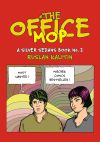Правообладателям!
Представленный фрагмент книги размещен по согласованию с распространителем легального контента ООО "ЛитРес" (не более 20% исходного текста). Если вы считаете, что размещение материала нарушает ваши или чьи-либо права, то сообщите нам об этом.Читателям!
Оплатили, но не знаете что делать дальше?
Текст бизнес-книги "Now We Are 40"
Автор книги: Tiffanie Darke
Раздел: Жанр неизвестен
Текущая страница: 5 (всего у книги 5 страниц)
5
Clinton’s Cigar
With greater transparency comes greater accountability. As the media exploded, and the traditional respect for privacy and restrictions around reporting on authority began to melt, power fell victim to the truth. Celebrities, once revered beasts of glamour, found themselves exposed as the humans they actually were. Tom Cruise was a cult Scientologist, David Beckham was a suspected adulterer, Jude Law was a wife-swapper, Jennifer Aniston’s marriage was on the rocks. But it wasn’t just the A-listers who were morphing into tragic soap stars in front of our eyes – it was the highest levels of government and those who had once been utterly untouchable, the Royals.
The Monica Lewinsky affair in the States seems incredible even now in the excruciating level of its detail. It was perhaps the last deliberately careless act of an American presidency that relied on secrecy. Back in 1998 Bill Clinton underestimated the growing power of the internet, the scrutiny of an ever more powerful press, the advance of technology in collecting DNA evidence. It was also the moment popular culture took on politics. Clinton’s affair struck at just the moment when technology, science, the press and popular culture came together.
Rumours of the Lewinsky affair first surfaced on the Drudge Report, at that time a fairly insignificant politics blog. Picked up by the Washington Post, it was enough for Clinton to utter the eleven words that were later to bring him down: ‘I did not have sexual relations with that woman, Miss Lewinsky.’ An investigation was set up on the popular satirical sketch show Saturday Night Live. The internet hummed with rumour and speculation. The presidency of the United States was now reduced to a conversation around blowjobs and cigar dildos. And then investigators found DNA evidence on a blue dress. There was to be no cover-up this time. An independent investigator was appointed to ascertain whether the president had lied. Eleven months and acres of media coverage later, both parties were left shamed and broken.
Over here in the UK, we had already witnessed the unravelling of Charles and Diana’s marriage in similarly glorious detail. Charles found himself the victim of a leak of phone tapes, caught red-handed talking to his mistress and expressing a naïve (aristocratic? who knows!) desire to be her tampon. Pretty hard to command future kingly respect following that one. Diana played her hand as the wronged siren, finding lovers in surgical operating theatres and on yachts with the sons of Middle Eastern billionaires, turning up at openings in drop-dead gorgeous designer gear. Charles sought to rescue his credibility with TV confessionals but he was no match for his wife, who was much more in tune with the times.
It was the endgame, as we now know, and as the final acts of both events played out to a watching world, they ended in spectacular tragedy: impeachment for the president and the self-proclaimed prophecy of death for Diana. Diana’s ride around the Med on Dodi Fayed’s gin palaces ended in horror as the paparazzi chased her to her death on a midnight flit from the Ritz in Paris. The gradual erosion of authority that had kicked off the decade had ended it with shame for the British Royal Family and the American political establishment. Nobody believed anything any more about our inherited structures. The old ways were broken. But what did that leave us?
‘We are the first generation for whom the level of media scrutiny has made it impossible for anyone to make a move into political life,’ says Kris Thykier. ‘Until the election of Donald Trump last year, we have only had people in government who have been in politics all their lives – because unless you’re in politics all your life, you haven’t run a life that will allow you to be in politics. It may have been possible in the Sixties and Seventies, even the Eighties. But it stopped being possible in the Nineties.’ The life of JFK was no less colourful than Clinton’s – but that was no impediment, far from it. ‘When Clinton came to power in 1993, the “I didn’t inhale” line was a fudge, an indication of what was to come.’
What followed was two decades of scrutiny on our politicians that has possibly manacled some of the free-wheeling entrepreneurialism and colour that kept the political populous and discourse lively and diverse. While Generation X was busy ushering in a period of intense cultural change, the establishment failed to find an alternative route. The year 2016, however, saw all that turned on its head. Fed up with the status quo, fed up with a government that effects incremental change that seems only to be in the best interest of the elitist few, the British electorate voted themselves out of the European Union, and the American electorate voted in a man who was the antithesis of what we thought was acceptable in a politician. Dismissing liberalisation and globalisation in a great sweep, America now waits to see what kind of change a Trump presidency will bring. And Britain faces years of legal wrangling and paper-pushing as it attempts to disentangle itself from membership of the EU. Where change should and could happen is through politics – perhaps as we head into the latter years of this decade this is where we will begin to see it again. Because for a long time our attention was diverted from the political to the personal – it was, after all, much more fun. After the Clintons came the Osbournes. MTV’s reality series of life at home with a bonkers rock star began the era of ‘Reality’. Svengali of the series was Ozzy’s wife Sharon; portrayed as the long-suffering partner of a drug-addled, unfaithful star, it soon turned out that truth was stranger than fiction when tales of her defecating into a box and leaving it on people’s desks turned out to be leaked by none other than Sharon herself. She was manipulating a willing audience into believing her pantomime family was as off the scale as it appeared.
Hardly anyone who watched The Osbournes could name a single Ozzy song, but it didn’t matter. This lunatic rock musician, famous mostly for biting the head off a bat, now turned out to have a domestic life that was fascinating in its gross absurdity and yet also its mundanity. Celebrity rockers have marriage problems just like the rest of us, and they also have untidy houses and stroppy teenage children. It was a revelation.
‘The Kardashians have got nothing on the Osbournes,’ says Jamie East, founder of gossip site Holy Moly. ‘The Osbournes made us realise we didn’t like the gloss of the celebrity world. What we liked instead was watching Sharon call her husband a bastard and crying about his drugs or the time he threatened to shoot her. People could watch The Osbournes and think, “I had a similar argument with my husband. Okay, he didn’t earn a million quid and he’s not on cocaine but he spent our last 50 quid in the bookies and the kids didn’t have sandwiches in school for a week!” All of a sudden we realised celebrities left skid marks in the bowl just like the rest of us.’
East at this time was a lowly mole working at Sky TV. Celebrities and tasty morsels of gossip used to pass by his desk, and he needed somewhere to pass them on. That place was Popbitch. Starting out as an email newsletter of crude and rudimentary – yet dehabilitatingly hilarious – stories, it rode the wave of media from print to digital.
East saw the opportunity to set up a rival website, Holy Moly. ‘We were riding this wave of snark. Nick Denton was doing it overseas with Gawker, but our remit at Holy Moly was that we would always go where no one else would go – we were blunt.’
Внимание! Это ознакомительный фрагмент книги.
Если начало книги вам понравилось, то полную версию можно приобрести у нашего партнёра - распространителя легального контента ООО "ЛитРес".Правообладателям!
Представленный фрагмент книги размещен по согласованию с распространителем легального контента ООО "ЛитРес" (не более 20% исходного текста). Если вы считаете, что размещение материала нарушает ваши или чьи-либо права, то сообщите нам об этом.Читателям!
Оплатили, но не знаете что делать дальше?






